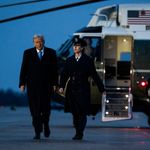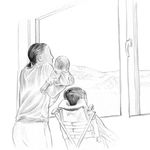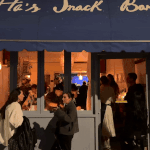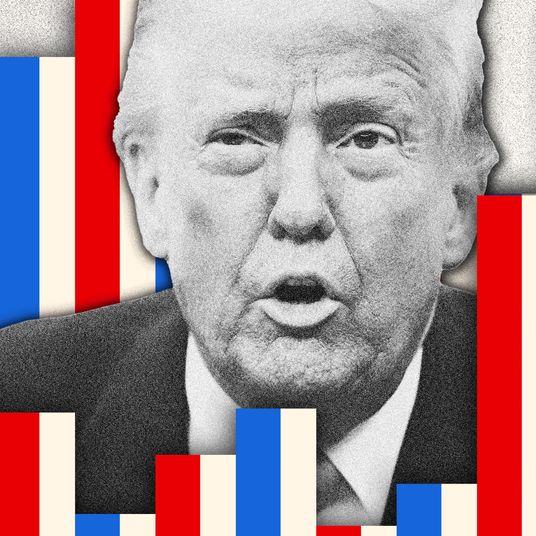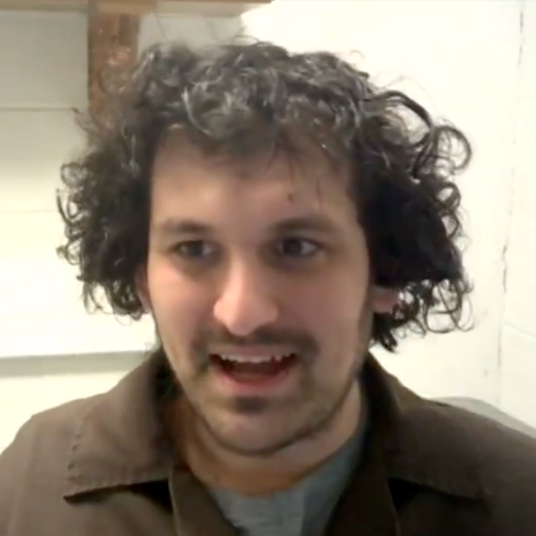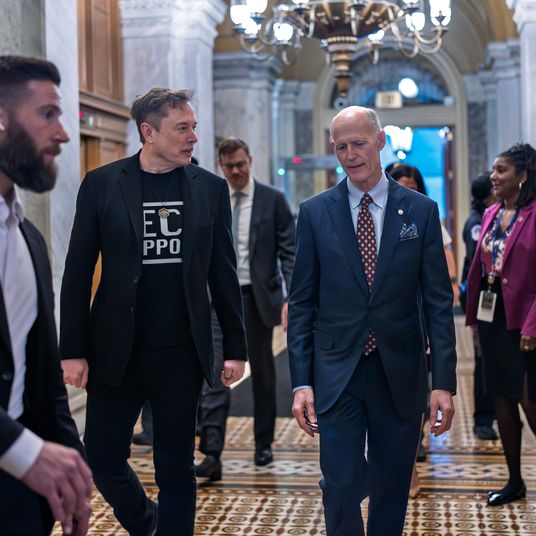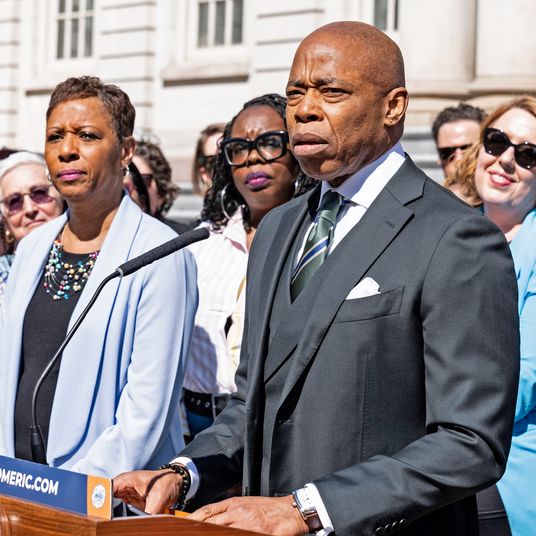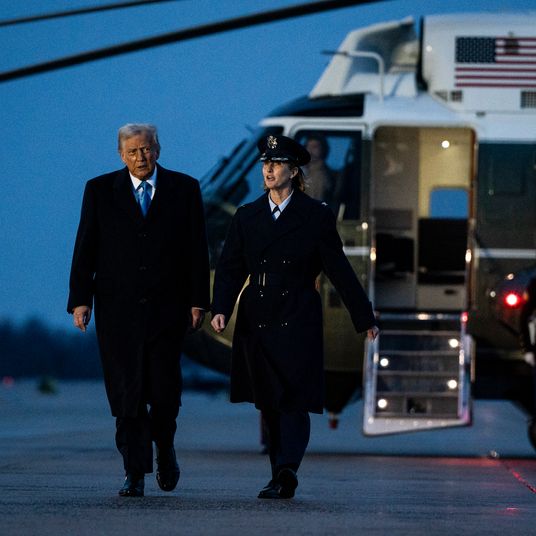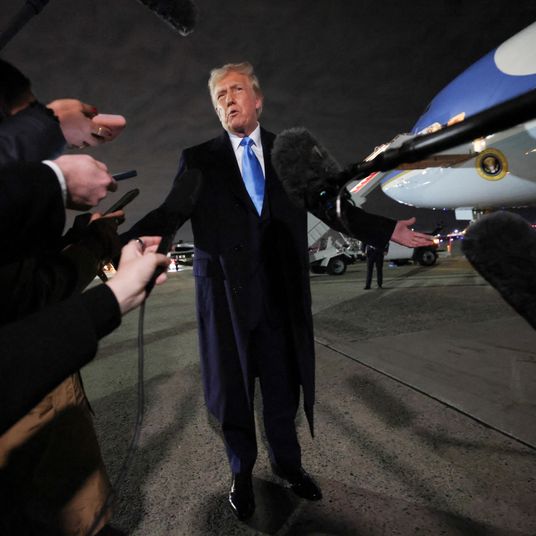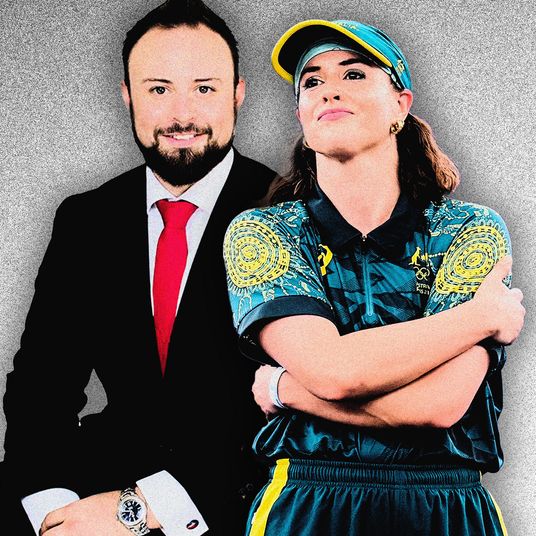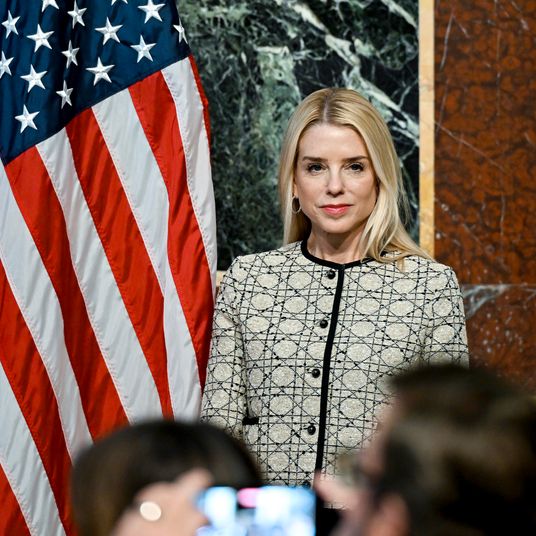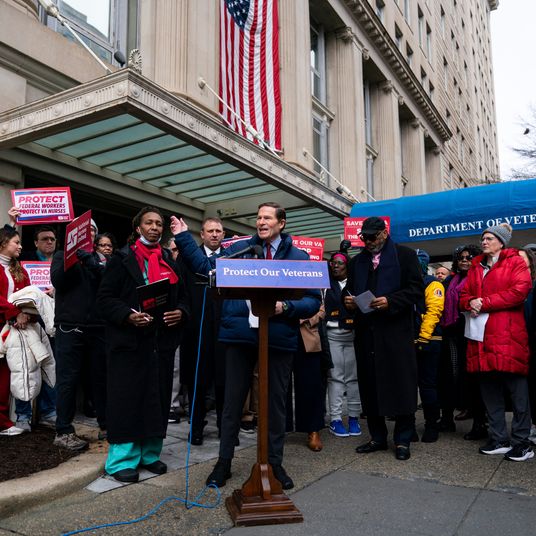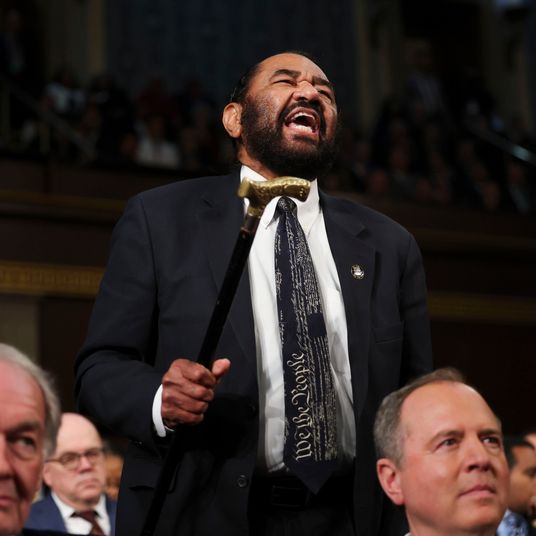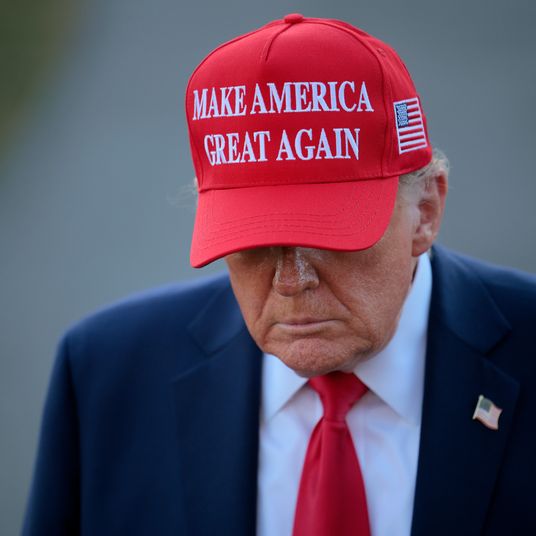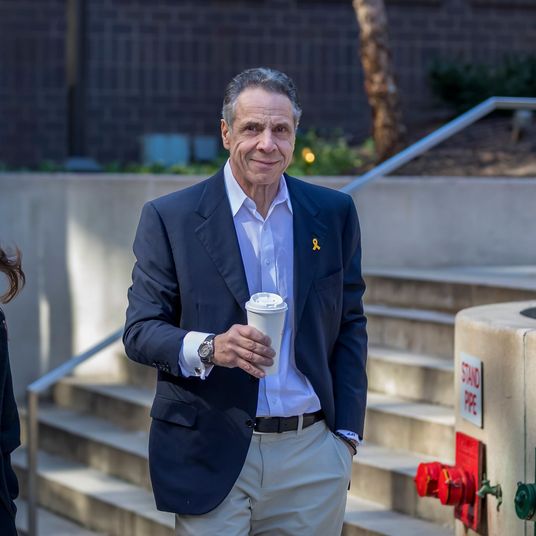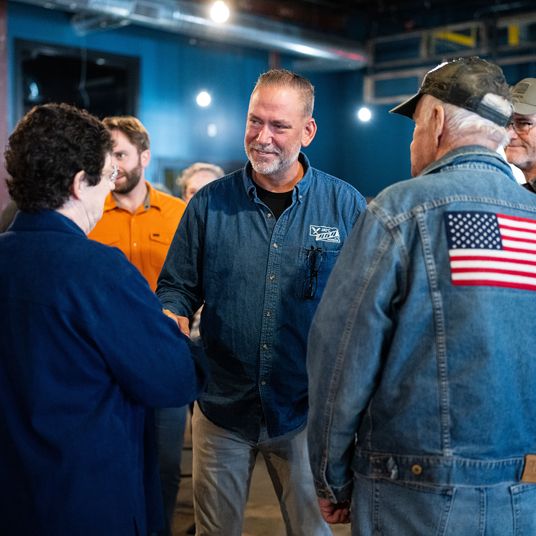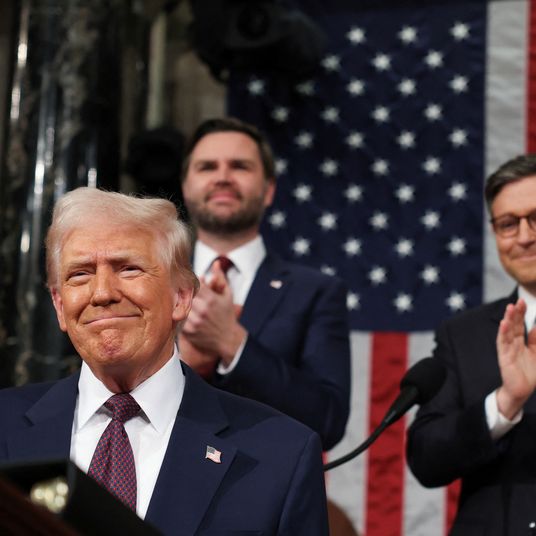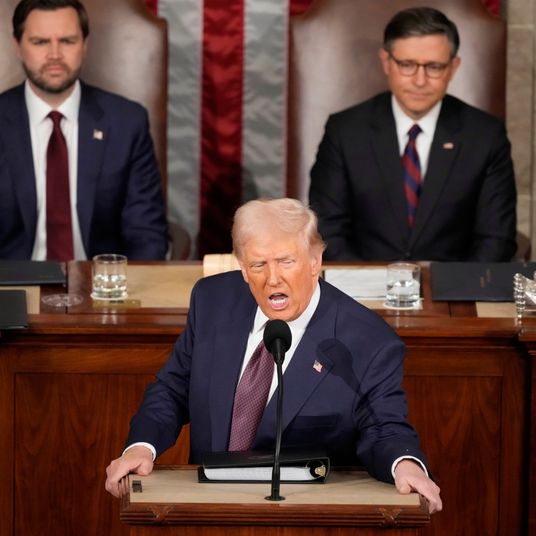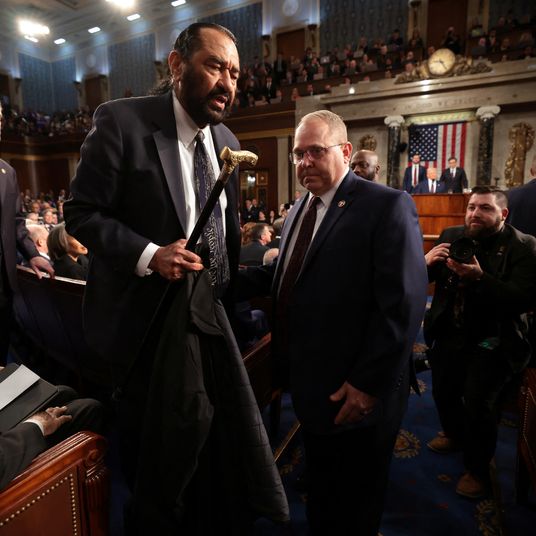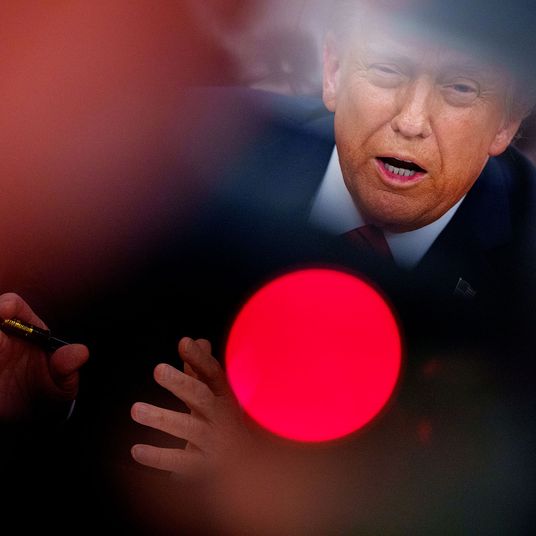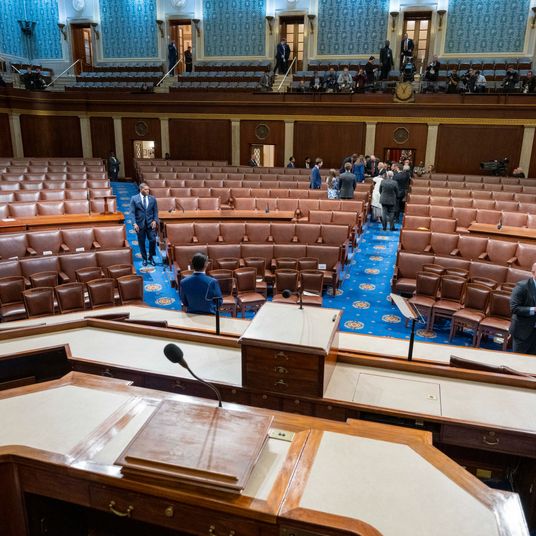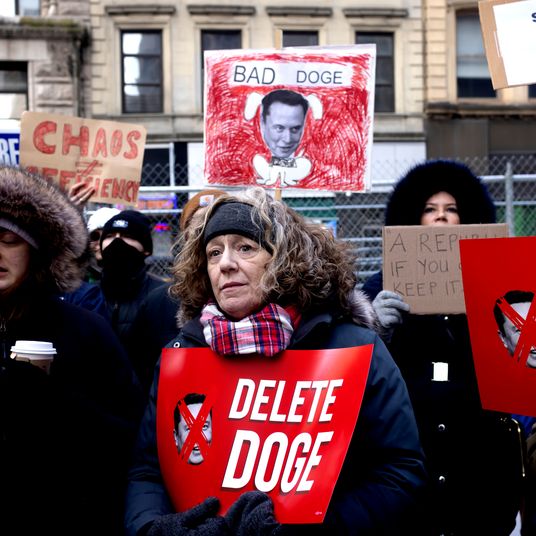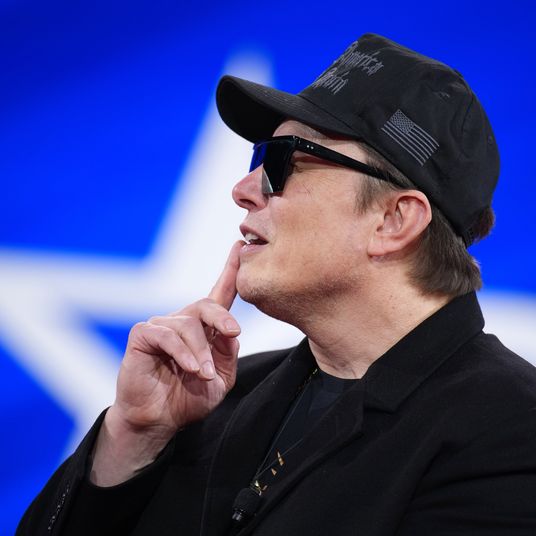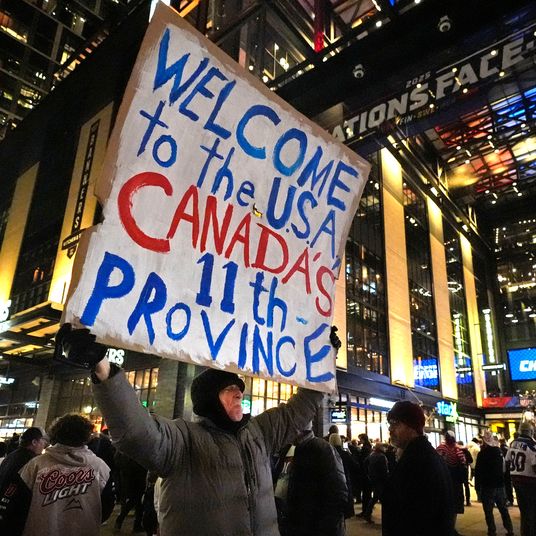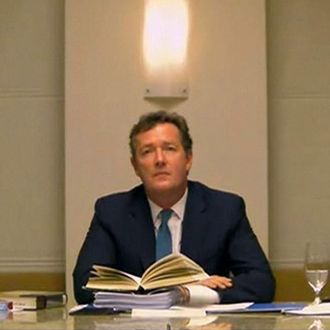
“I’m not going to get into rumor-mongering,” said a very careful Piers Morgan today at a Leveson Inquiry hearing meant to gather evidence and testimony about the British phone-hacking scandal. The story has so far centered on Rupert Murdoch’s News International properties, namely the now-shuttered News of the World, where Morgan was the editor between 1994 and 1995. But the CNN host and longtime showbiz journalist has found himself on the fringe of the investigation, not owing to hard evidence, but because of quotes he’s given over the years in books, essays, and interviews about the process of journalists hacking phone messages and participating in other questionable tactics to find an exclusive story. Morgan appeared today before the government panel via live video feed and battled through an often testy exchange with elusive, noncommittal answers, always working to distance himself from wrongdoing or leave a gray area. The tactic was audibly frustrating to the lawyer doing the interrogating. Asked, for instance, if he has ever listened to an intercepted voice mail, Morgan responded, “I do not believe so.” The lawyer shot back, “It is not a matter of belief.”
At times, Morgan sent quips back at his questioner, insisting that tabloids did good things, too. Being made to answer for bygone darker moments, Morgan concluded, left him feeling “like a rock star” being questioned about his back catalogue. When asked about a journalist who posed as a Buckingham Palace guard to expose “breaches in royal security,” Morgan responded, “Rather us than a terrorist.”
Along with his time at the News of the World, Morgan served as editor of another British tabloid, the Daily Mirror, for nearly a decade until 2004. There, he said, he never personally hired the sort of private investigators who have been charged elsewhere with breaking into private messages. “I was never directly involved,” Morgan said, insisting that the job fell to the news or features desk.
“Wasn’t it your responsibility to be aware of what your journalists were doing? At least in general terms?” Morgan was asked. “The average editor is probably aware of about 5 percent of what these journalists are up to at any given time,” Morgan responded. Later, he added that he rarely asked his journalists for their sources. In his book, Morgan wrote, “Ethical determinations are central to the role of an editor of a major national newspaper. … Ethical considerations were interwoven into my work and were an omnipresent aspect of daily life.” Apparently, he had a lot of trust in his employees. “I never had any concerns they were breaking the law with regards to private investigators,” Morgan said today.
To hear Morgan tell it, he never did any hacking himself and was not aware of anyone who did, nor did he pay off police, as News International stands accused of. Repeatedly, Morgan’s inquirers invoked his own quotes about the questionable morals of Fleet Street, including Morgan’s claim that “at one stage I was played a tape of a message Paul [McCartney] had left for Heather [Mills] on her mobile phone.” Today, Morgan refused to provide more detail about the Mills message in fear of giving up his source, he said.
Morgan also backed up his previous claim that the News of the World editor Clive Goodman “has been made the scapegoat for a very widespread practice,” though a practice with which Morgan said he’s had no experience. The Goodman assertion, Morgan said today, has been substantiated. “Having known him when I was at the News of the World,” Morgan said, “I felt sorry for him.”
Today, News Corporation’s British newspaper group said it has settled seven more phone-hacking lawsuits, including one from Princess Diana’s former lover.
Related: Piers Morgan Isn’t Sleeping Well [NYM]


